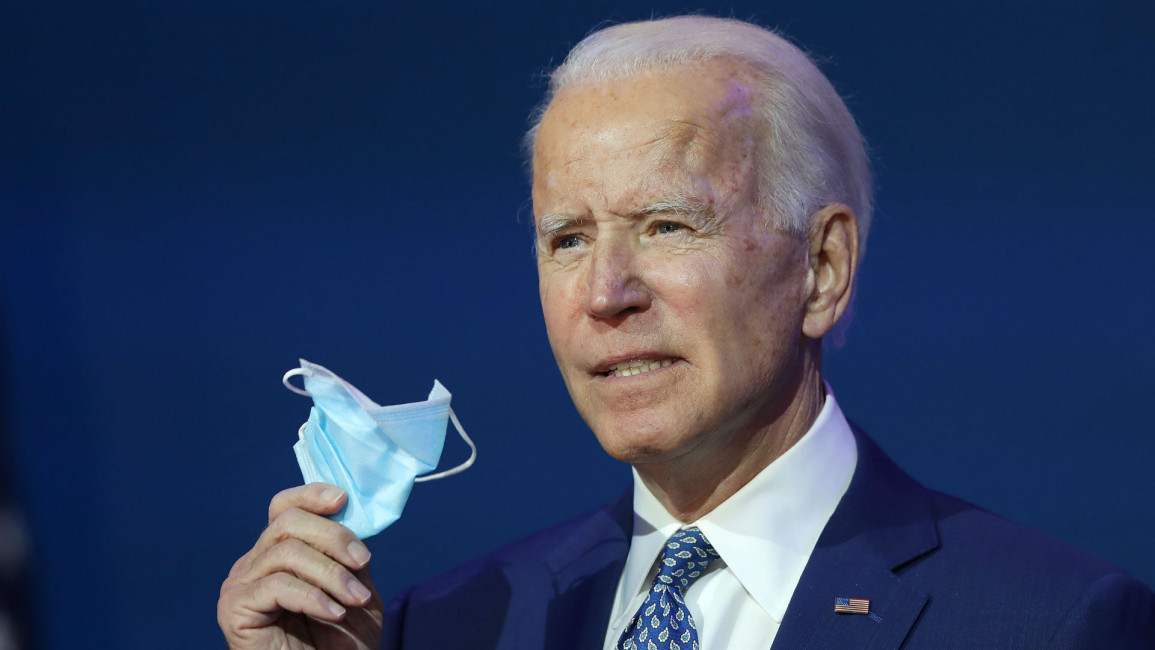Iran assassination could 'undercut' Biden's diplomatic options
Iran has accused arch-foe Israel of seeking to sow "chaos" by killing 59-year-old Mohsen Fakhrizadeh and has strongly implied that the Jewish state was acting with US blessing.
Washington has not officially commented on the operation, in which gunmen targeted Fakhrizadeh's car on a road outside Tehran, according to Iran's defence ministry.
But President Donald Trump has retweeted others' comments on the incident, including at least one that said the scientist had been "wanted for many years by Mossad," the Israeli intelligence agency.
Trump in 2018 withdrew the US from the multination nuclear agreement with Iran, instead launching a "maximum pressure" campaign which he appears determined to pursue until he leaves office in January.
Secretary of State Mike Pompeo, who recently visited Israel, on Friday announced new economic sanctions against some Chinese and Russian firms accused of having supported Iran's missile program.
"This administration... is here until January 20" and will "continue to pursue its policies," a senior US official traveling with Pompeo said during a stop Sunday in Abu Dhabi.
"I would hope that this leverage that the administration works so hard to get will be used to good purpose to get the Iranians to, once again, start behaving like a normal state."
Twitter Post
|
'Criminal act'
But for some American analysts, the killing of Fakhrizadeh was a dangerous act that undercuts Biden's stated intention of offering Iran "a credible path back to diplomacy" as a step toward the United States rejoining the nuclear accord.
Former CIA head John Brennan tweeted Friday that the scientist's killing was a "criminal act & highly reckless," saying it "risks lethal retaliation & a new round of regional conflict."
Brennan, who led the US intelligence agency from 2013-2017, when Barack Obama was president and Biden was vice president, exhorted Iran to "wait for the return of responsible American leadership on the global stage & to resist the urge to respond against perceived culprits."
As the US was moving a carrier group led by the USS Nimitz back to the Gulf - while insisting this had nothing to do with the assassination - Germany warned on Saturday against any new "escalation."
"We call on all parties to avoid taking any action which could lead to a new escalation of the situation" which "we absolutely do not need at this moment," a German foreign ministry spokesman told AFP.
"Weeks before a new government takes office in the United States, existing dialogue with Iran must be maintained in order to resolve through negotiation the conflict over Iran's nuclear program."
'Outrageous action'
That view was shared by Ben Friedman, a defence specialist at George Washington University.
The killing, he said, was "an act of sabotage against US diplomacy and interests" and would "likely help Iranian hardliners who want nuclear weapons."
For Ben Rhodes, a former advisor to Obama, "This is an outrageous action aimed at undermining diplomacy between an incoming US administration and Iran."
He added: "It's time for this ceaseless escalation to stop."
Read also: Iran accuses Israel of assassinating scientist and seeking 'chaos'
Some analysts, however, saw the killing in Iran as providing leverage to the incoming US administration that could be useful in possible negotiations with Tehran.
"Still almost two months before Joe Biden takes office," noted Mark Dubowitz, director of the Foundation for Defense of Democracies (FDD).
"Plenty of time for U.S. and Israel to inflict severe damage on the regime in Iran - and build leverage for the Biden administration."
Agencies contributed to this report.
Follow us on Facebook, Twitter and Instagram to stay connected


![A Palestinian girl stands amid the rubble of her destroyed home on 24 May 2021 in Beit Hanoun, Gaza. [Getty]](/sites/default/files/styles/image_212x120/public/2021-06/GettyImages-1233090336.jpg?h=a4507e6b&itok=XJNlCZFA)
